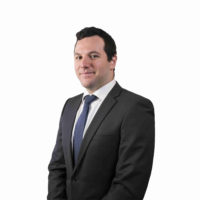Persons who witness an incident, or can give evidence about matters relating to an offence, are called by the Prosecution to give evidence at Court against an accused. Inevitably, these persons will sometimes be the accused’s spouse or partner, creating a situation where they are required to give evidence which may lead to the accused being found guilty.
Clearly there is a conflict between the provision of evidence before the Court and the relationship between the accused and their spouse or partner.
The common law position (as opposed to the legislative position) was recently discussed by the High Court in the matter of ACC v Stoddart. There the Court found that there were three factors which must first be considered before the evidence was to be admissible. In short, they are as follows:
1. The witness must be competent, (This would exclude children in some circumstances and persons of ‘defective intellect’)
2. The witness must be compellable, (example of those who are not, including the accused themselves, persons with diplomatic immunity and potentially members of parliament)
3. The witness is not protected by a privilege, such as the privilege against self-incrimination, legal professional privilege or in this case, privilege against spousal incrimination
Significantly, the High Court found that the leading case upon which the privilege exists was based on “no firm foundation”, and essentially that the privilege never existed.
State legislation however continues to provide protection for spouses in Victoria. Under the Evidence Act 2008, a spouse may object to giving evidence for the prosecution. In these circumstances, it then falls to the Court to find determine whether or not:
1. There is a likelihood that harm might be caused (directly or indirectly) to the person or relationship if the person gives evidence, and
2. The nature and extent of the harm outweighs the desirability of having the evidence given.
In making this assessment, the Court will look to factors such as the gravity of the criminal offending, the weight of the evidence, the nature of the relationship and whether any other relevant evidence is available.
It is important that spouses are aware of their rights under the legislation before they are called to give evidence by the prosecution. If you find yourself in such a situation, you should seek your own legal advice from a Melbourne criminal lawyer prior to being called.


